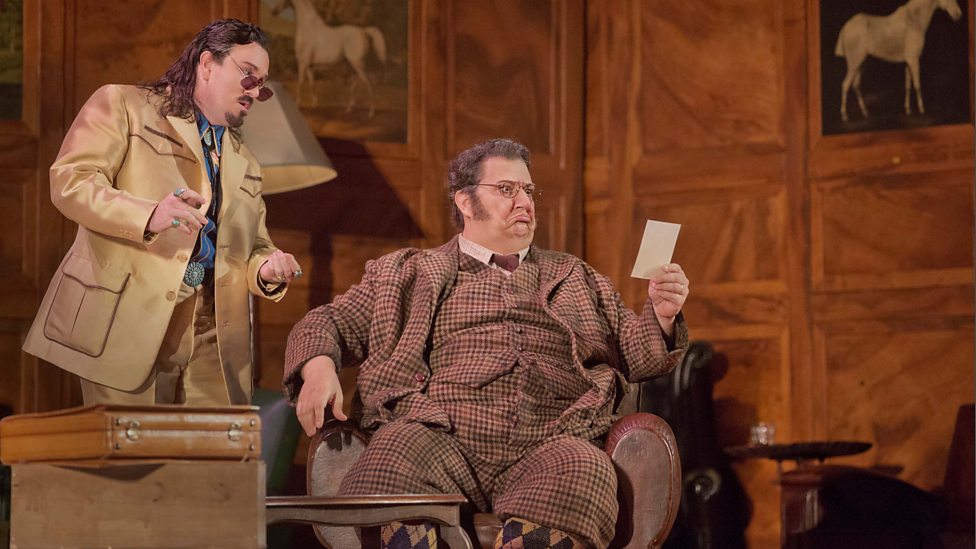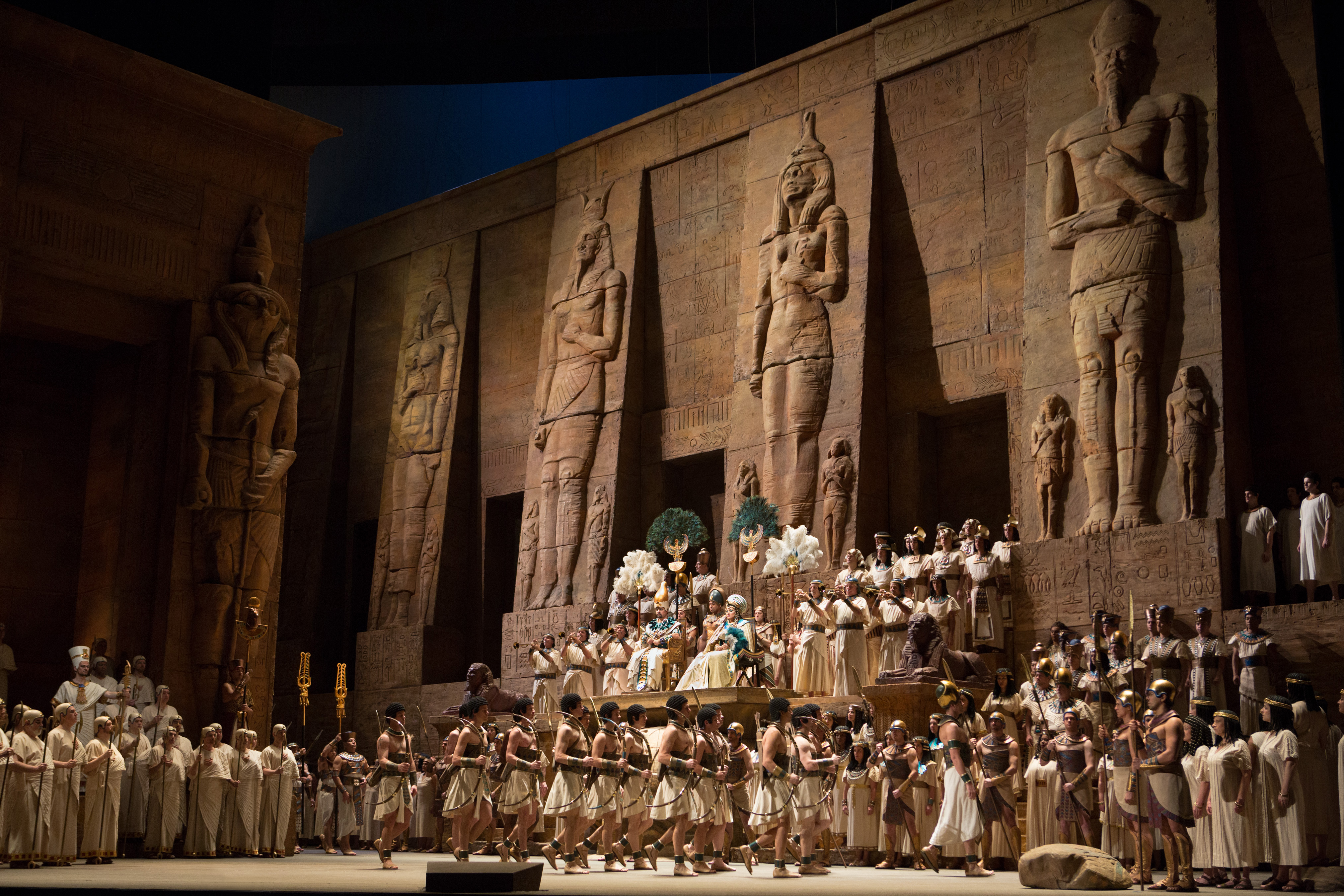VIEWPOINTS – Viva Verdi!: Verdi operas dominate the Met before Wagner’s Ring Cycle settles in
- By drediman
- March 7, 2019
- No Comments
Before the Metroplitan Opera embarks on staging a series of performances of Wagner’s Ring Cycle this spring, the mighty opera company has programmed a trio of Verdi operas, two of which I caught – Falstaff and Aida. I’m happy to report that both revivals are excellent (the other Verdi opera currently in the rotation is Michael Mayer’s brash and colorful staging of Rigoletto, set in 1969s Las Vegas nightclub of a all places).

Ambrogio Maestri leads Verdi’s “Falstaff” at the Metropolitan Opera.
First up was Falstaff (RECOMMENDED), Verdi’s operatic adaptation of Shakespeare’s The Merry Wives of Windsor, as well as a few scenes from Henry IV, Parts 1 and 2. This short run at the Met is the first mounting of Robert Carsen’s delectable production since it premiered at the Met in 2013. I remain a fan of the staging, which is not surprising given my affinity towards Mr. Carsen’s clean aesthetics – strikingly clean yet boldly filling the huge Met stage. Indeed, I applaud the production for being stylish (updated to depict 50s postwar England) without being alienating; the animated production has a sharp satiric English edge that lends itself quite well to the madcap shenanigans of the Bard’s comedy, one of his most amusing – if on the lighter, less insightful side. In the pompous and much-loved title role, Italian baritone Ambrogio Maestri reprises his performance. He’s as sensational as ever as the overweight cuckold, singing and acting deliciously. He’s supported gamely and giddily by soprano Ailyn Pérez as Alice Ford and soprano Golda Schultz as Nannetta. Falstaff represents Verdi at his most mature (the opera is the last to be composed of the master’s 28 operas) – it eschews big, discrete crowd-pleasing numbers in favor of integrated music drama – which conductor Richard Farnes handled with spirit and nuance.

A scene from Verdi’s “Aida” at the Metropolitan Opera.
Next up was the Met’s classic production of Aida (RECOMMENDED). If Mr. Carsen’s Falstaff epitomizes the current Met aesthetic (stylish, clean), then Sonja Frisell’s 1988 production of this ever-popular Egypt-set opera is a flashback to the Met of olden days – that is, traditional, naturalistic, and terribly opulent. Indeed, this Aida thrives and relies on its monumental sets (including the rare utilization of the Met’s jaw-dropping elevator stage), hundreds of bodies onstage (comprised of chorus, corps de ballet, and extras), and even four live horses. But if there was ever an opera that begged for spectacle, it’s this pageant of an opera. One of the reasons for revisiting this lavish production was to experience it in person one last time; it’s been recently announced that the expansive production will be replaced two seasons from now. Luckily, the cast I caught was quite good, led by a stunningly expressive performance by the fabulous soprano Sondra Radvanovsky in the title role. She was powerfully supported by tenor Jorge de León and mezzo-soprano Olesya Petrova as Ramadès and Amneris, respectively. The evening was conducted by none other than the legendary Placido Domingo (who, in his heyday as one of the most sought-after tenors in the world, starred in this very production as Ramadès many times), who led a steady, fragrant account of Verdi’s score. This is one of the few iconic “old school” productions left in the Met’s repertoire (general director Peter Gelb has been, slowly but surely, replacing them during his reign). Although I’m looking forward to a new interpretation of Aida, I’ll be sad to see this particular one go. The last performance takes place tonight.
FALSTAFF
Opera
The Metropolitan Opera
2 hours, 40 minutes (with one intermission)
In repertory through March 16
AIDA
Opera
The Metropolitan Opera
3 hours, 40 minutes (with two intermissions)
In repertory through March 7

 Copyright © 2024
Copyright © 2024
Leave a Reply